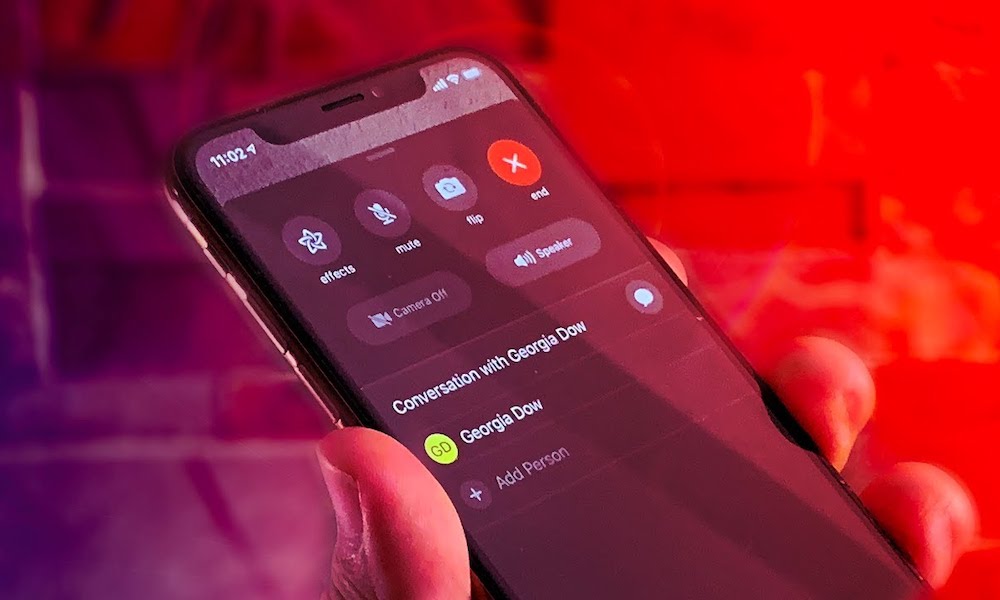Apple Scores a Victory in FaceTime Eavesdropping Lawsuit
 Credit: Rene Ritchie / YouTube
Credit: Rene Ritchie / YouTube
Toggle Dark Mode
While Apple isn’t faring so well in its long-standing App Store anti-trust case, the iPhone maker has scored a minor victory in at least one lawsuit that resulted from the infamous Group FaceTime bug that surfaced earlier this year.
For those who may not recall, a major privacy flaw was discovered in iOS 12.1 Group FaceTime that allowed for potential eavesdropping through unanswered FaceTime calls. While it later became clear that the issue was privately reported to Apple and lost in a bureaucratic shuffle a week before it became public, once the news broke, Apple quickly shut down its Group FaceTime on its servers to prevent the issue from being exploited.
Not long after news of the flaw broke, however, a Houston-based lawyer, Larry Williams II, filed a lawsuit against Apple alleging that the company “failed to exercise reasonable care” with its iOS 12.1 update, allowing the operating system to be publicly released with the Group FaceTime bug in place, and then failing to adequately warn users of the danger of the flaw once it was discovered.
As the basis for his lawsuit, Williams alleged that he was undergoing a private deposition with one of his clients when the “defective product breach” allowed for that conversation to be recorded, causing “sustained permanent and continuous injuries, pain and suffering and emotional trauma” and that Williams “lost ability to earn a living” as a result of the bug.
However, according to MacRumors, a court ruled in Apple’s favor last week, dismissing the case on the basis of the Williams’ inability to prove that Apple knew of the defect, and disagreeing with his claims that the bug was “unreasonably dangerous.”
Key to Williams’ case was that Apple knew, or should have known about the defect prior to or immediately after the release of iOS 12.1, and that it failed to provide any warnings or instructions that “would have put [users] on notice of the dangers and adverse effects” caused by iOS 12.1. In the suit, Williams was requesting unspecified compensatory and punitive damages for a shopping list of legal issues that included negligence, product liability based on defective design and failure to warn, breach of express and implied warranties, fraudulent misrepresentation and concealment, negligent misrepresentation, and unjust enrichment.
The court documents further note that, in addition to Apple, Williams was also suing “100 unknown defendants” for the same case, who were listed as “agents, servants[,and] employees” of Apple who were “acting in the scope of their employment, suggesting that he had included Apple executives and FaceTime engineers individually in his lawsuit as well.
In its ruling, the U.S. District Court for the Southern District of Texas states that in order for Williams’ claim of Apple’s strict liability to be valid, he would have to show that the iPhone had a design defect that would “render is unreasonably dangerous,” that a “safer alternative design existed,” and that the defect caused the actual injury he was seeking damages for.
Williams’s petition does not allege facts about any available alternative design. He fails to allege facts about the iOS 12.1 software as to whether the defect that allegedly allowed a third party to “eavesdrop” on his group Facetime call was “unreasonable” for the product’s ordinary use. Williams’s generalized allegation that the iOS 12.1 software was “unreasonably dangerous” and caused him injury falls short of the Rule 8 threshold
Ruling in Civil Action H-19-782, U.S. District Court for the Southern District of Texas
The court determined that Williams allegations about iOS 12.1 being “unreasonably dangerous” were generalized and didn’t meet the standards of “Rule 8” which it notes “demands more than an unadorned, the-defendant-unlawfully-harmed-me accusation” and more than “a sheer possibility that a defendant has acted unlawfully.”
The court also ruled that Williams failed to provide any facts that could prove that Apple knew about the defect, or even that Apple should have reasonably known about it.
Williams’s petition … does not allege facts that could show Apple’s knowledge of the defect or that Apple could reasonably have foreseen that an unknown third party would listen to Williams’s group Facetime call without his permission.
Ruling in Civil Action H-19-782, U.S. District Court for the Southern District of Texas
The court also dismissed Williams negligence claim due to his inability to provide evidence that could show any negligence on the part of Apple’s design of iOS 12.1, nor even state what he believed Apple’s “duty of care” was or how the company breached it. Instead, Williams’ allegations simply “recite the legal elements of a negligence claim in conclusory terms.”
According to the court, Williams also failed to show that Apple breached any warranties with iOS 12.1, since he could not prove that the iOS update was “unfit for the ordinary purposes” and that the mere existence of a bug allowing unknown third parties to eavesdrop was not enough to “show that the software was unmerchantable.” He also made no claim that he attempted to notify Apple of the alleged defect prior to filing his lawsuit.
In summary, the court ultimately found Williams’ case against Apple to be extremely weak and not particularly well-thought-out, and granted Apple’s motion to dismiss the case. Williams could still amend the case and refile by June 7, 2019, but it sounds like he’ll need to put in a lot more effort to convince the court that Apple was liable in any way for the Group FaceTime bug.






